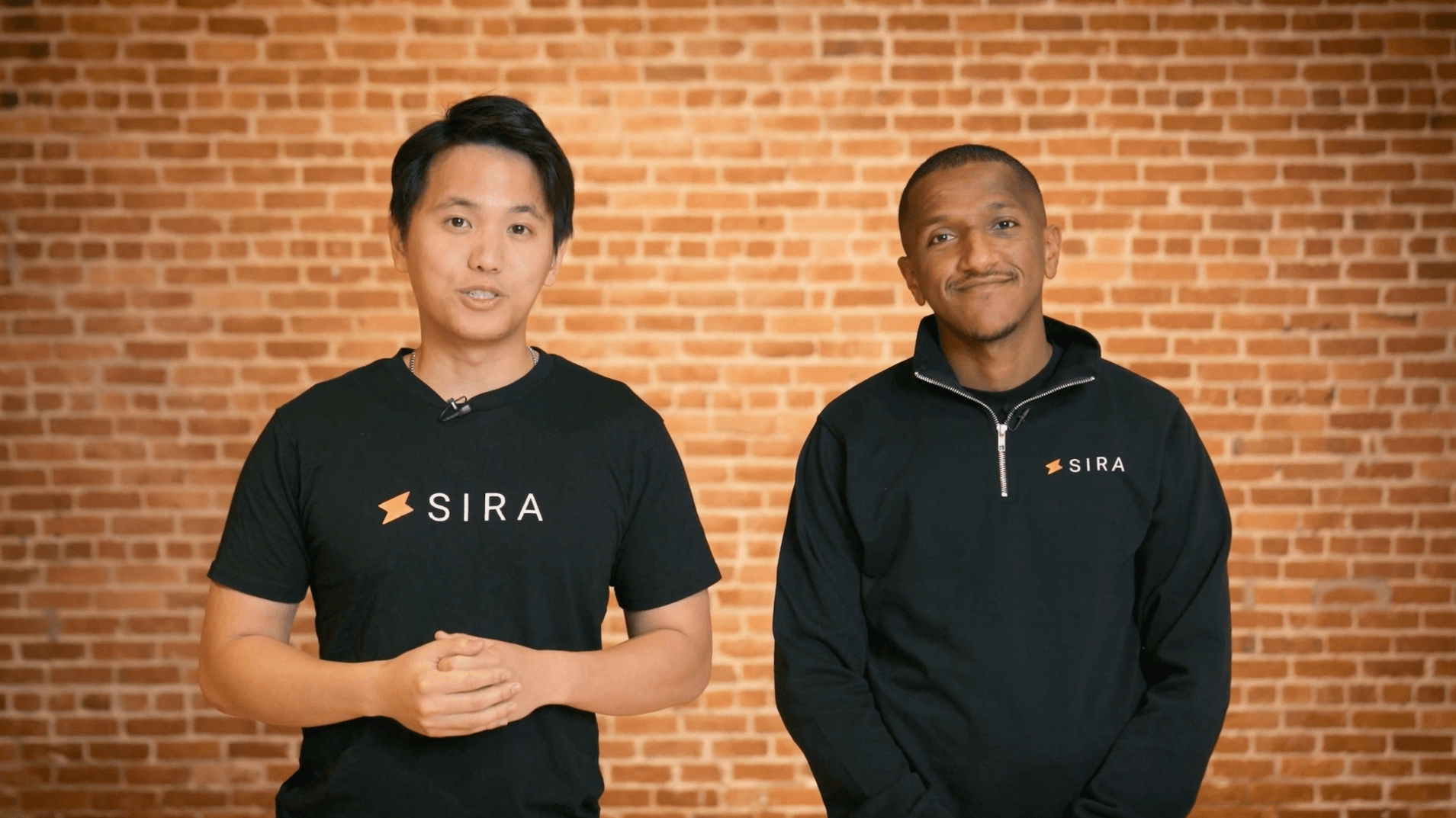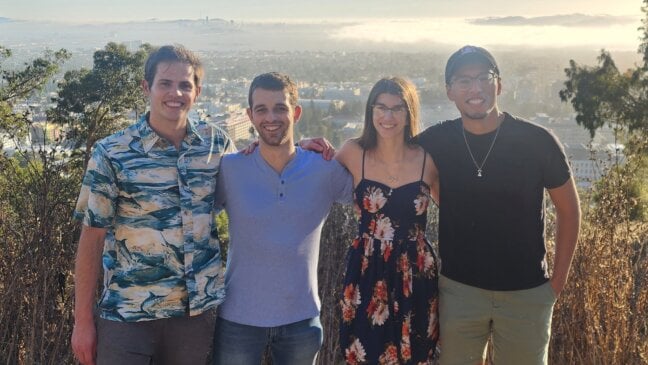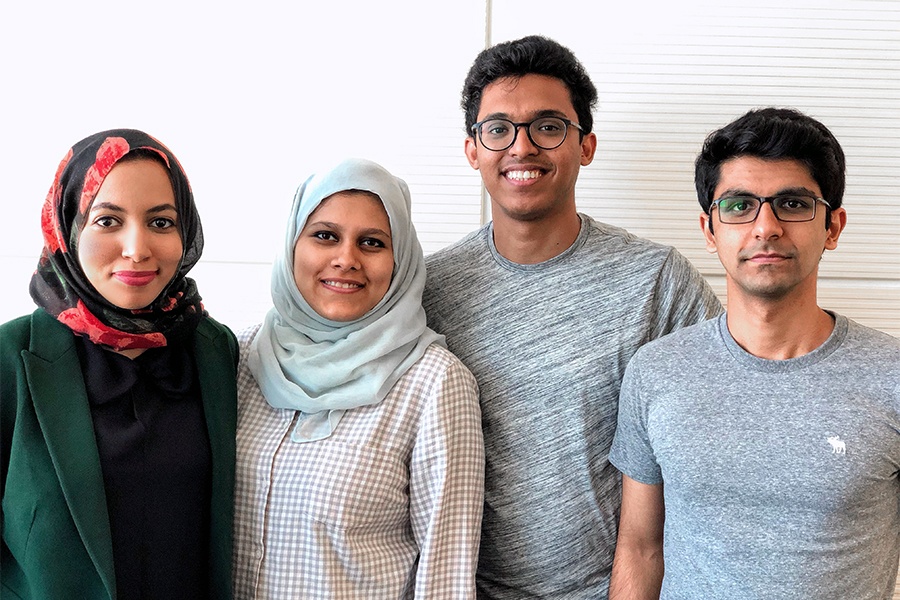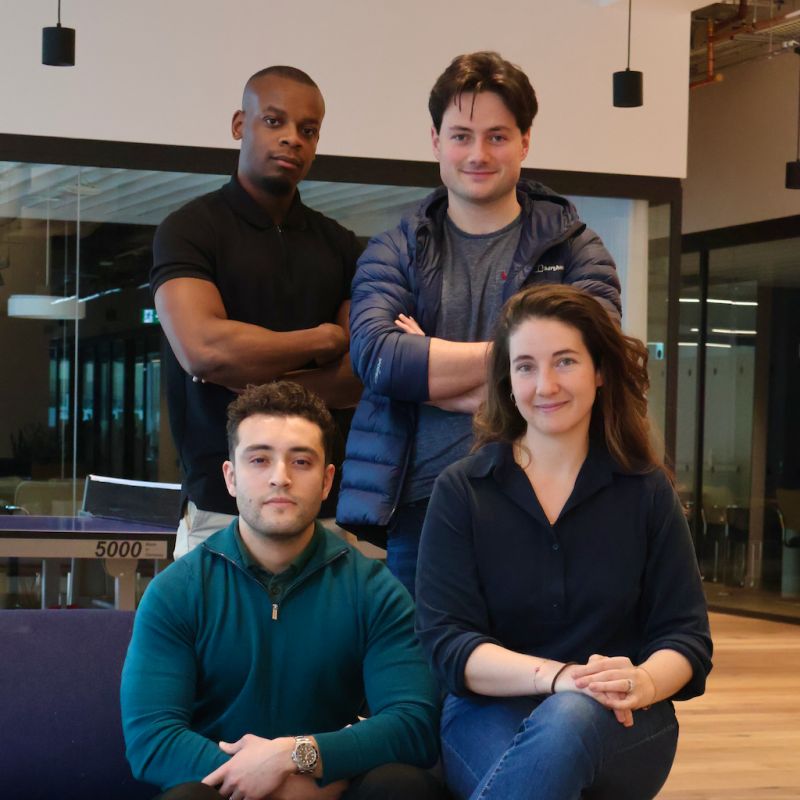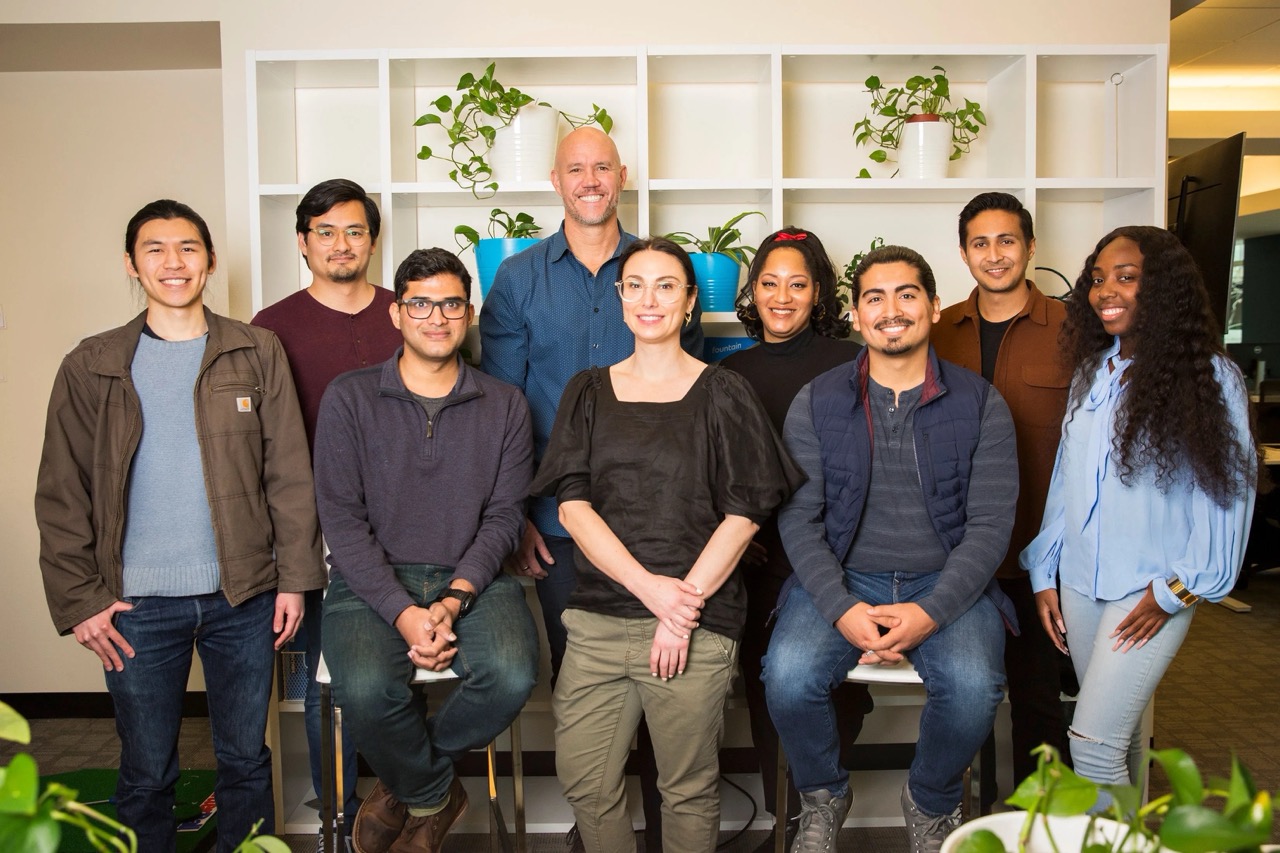Being Heard Is Part of Retention: Maisha Gray-Diggs on Sourcing and Keeping Talent Today

Key Takeaways:
- Even in this downturn, it’s still a candidate’s market if your company is looking for very specific, high-demand skills. Especially in AI!
- Good PMs who have actually brought products to market successfully are in high demand and invaluable.
- People leaders are still piecing together different point solutions to solve their challenges. A streamlined solution that can manage candidate and employee experiences throughout the entire employee lifecycle is the Holy Grail.
- If you want top performers to stay, you need to give them exposure.
For our latest People Matters interview, we chatted with Maisha Gray-Diggs, VP of Global Talent Acquisition, Inclusion, and Experience at Eventbrite. Before Eventbrite, she was a talent acquisition leader at Twitter and Microsoft, and started her career as a PhD engineer at Procter & Gamble.
In this interview, Maisha discusses how the talent market is still a candidate’s market, what types of technology solutions her team is looking for, and what it takes to retain top talent.
This interview has been edited for clarity and brevity.
Can you share a bit about your journey into recruiting and talent acquisition?
Most folks know I’m an engineer turned HR professional. And I always tell folks I’m fake HR because I spent so much time trained as an engineer. I have a BS from MIT and a PhD from Northwestern in Material Sciences and Engineering.
As I think about it, I’ve always done recruiting even if I didn’t know it at the time. In high school, for example, I did tours for my predominantly white high school. I always had underrepresented students shadowing me and my job was to convince them that they could come to our high school and feel safe. So when I think about when my recruiting career started, it was probably in trying to increase the representation at my high school.
But really I was trying to get more faces that looked like me in that space. And so that is the thread that defines me as a talent acquisition professional. It’s really about creating equity and access to different spaces.
P&G is where I had my first real talent acquisition experience. They were at a place where many of the senior technologists were eligible for retirement. This was the part of the company that was responsible for like 85% of the innovation-based revenue. So the leadership of the company went to them and said none of them could leave until they had the time to find, train and mentor their backfill. And they said “well if that’s the case we want more of a partnership with recruiting”.
They asked me to take on the role. I told them no a couple of times but finally they were like “No this is actually your job. What do you need to be successful in this role?” Employers don’t normally ask young black women what they need to do their jobs well, so it was really the first time that I advocated for myself for things I needed, which included my mom traveling with me since I took the role when I was 19 weeks pregnant with twins and had planned for a year of maternity leave.
I loved that job. But there was no career path, so I had to go back to the business of making baby diapers, which I loved too. But I said that if I ever got the chance to do recruiting full-time, I would. And then when Microsoft called and asked if I would think about joining, I said absolutely. And the rest is history.
A few years ago there was a frenzy in the hiring market, especially in the tech sector, for new talent. That has slowed or completely stopped in the past year. How do you think people leaders have had to evolve their recruiting practices in this new labor market?
I would say there is still a frenzy, but it’s a different kind of frenzy. I think it’s still a candidate’s market, but around the really specialized skill sets we need. When you’re only hiring a certain number of people and it’s focused on critical roles and skill sets, there are only so many candidates who have it. So I think they’re still in the driver’s seat.
What I try to tell my team and other people leaders is first that we’ve evolved out of trying to plan for a year. I am planning month to month, so it’s really forcing me to think about pipelines and skill sets in a different way than everything being a niche role.
Because it’s a candidate’s market, there is also an opportunity for us to make candidates feel we are the only place for them. How do we bring that touch at scale?
How do you make a candidate feel special, especially when hiring at scale?
We want to be listening and actively present in recruiting phone screens. Those can often feel transactional. As we listen to and learn about candidates, we then translate that into the experience we curate. We want people to feel like we heard them and they are seen.
I can also still get candidates on the phone with our CEO and other C-Suite executives in a way that I know is harder at bigger companies. But for us, recruiting is a priority and intertwined with our business goal. So if talking to one of them may make a candidate feel more comfortable, we make it happen.
At Reach, we’ve been tracking declining college enrollment trends and a growing sentiment against college. Given less interest in a traditional college degree, what does that mean for recruiting leaders as they think about sourcing talent?
When I think about people who don’t have degrees, but have been really successful I think about Bill Gates, Mark Zuckerberg, Steve Jobs, Jack Dorsey, and more. And I try to balance that with the message that folks from underrepresented communities and marginalized communities have gotten around the value of education. For many of us, it was ingrained that in the US to break the generational cycle we needed that traditional college degree.
And so I have to straddle that fence. Removing a college degree requirement is important to open that funnel up. But I also know that I have a generation of folks for whom education is very important. I have to respect that.
The pandemic helped disrupt the need for a broker of talent. We saw that we could go straight to the candidate. We didn’t have to rely on schools as much; people were out there selling themselves. Students were doing creative stuff to get noticed by companies like TikTok video resumes, gap years that included internships with multiple companies, and more.
We have to think differently about how we let talent in. The more we pitch the top of the funnel that you need a degree or certain types of experiences and internships, all of those things become blockers. How do we screen for behaviors that are aligned with success in the long-term versus just what’s right for today?
Increasing the diversity of the technology workforce has been a major discussion for the better part of the last decade. I’m curious what practices actually move the needle? And how can we continue to make sure this is a priority in a potential downturn?
The size of the organization becomes really important. When you get to the size of a Google or Facebook, you have to start carving it up to make a measurable impact. At Twitter we did an amazing job. We were at 3,500 when I got there. We were doing calculations like how many hires do we need to make, how many need to be diverse and based on the skill sets we want, what does the total addressable market look like. We had to get really technical. You have to be intentional about everything you do.
Your HR team should also be diverse. HR is predominantly women, and more specifically white women. When you look at my teams, it is shocking to people when their first touchpoint might be a Black or Asian man. But it’s very intentional. They are good recruiters, from great backgrounds, and they have lived experiences that can tailor the experience for a range of candidates.
I also think this is an area where venture capitalists could have an influence early on in an organization’s life cycle. Because once companies get too big, it gets much harder to move the needle. VCs can support and encourage their companies to build in practices to find and support diverse talent early on.
We’ve seen a lot of technology solutions promising to make the lives of recruiting and talent teams easier. Are there any tools that you and your team have used that you love?
As an innovative tech company, we’re always on the lookout for the best tools. One of the things I’m asking my team to do is look at our tech stack and see how automated and streamlined it is.
We have a bunch of tools and I think about how when I used to make baby diapers our modules were plug-and-play. HR systems really aren’t plug-and-play at all. As I’m moving to a new applicant tracking system, I have to ask: Do I have a CRM? Sourcing tool? Before you know it, we’ve stacked all these tools and I still have a question on whether I’m going to be more efficient.
As a follow-up question, how then do companies stand out when they are trying to pitch you?
We want a seamless integration across the entire employee lifecycle. We have a RFP out right now for a new ATS with CRM capability and automation is key. It’s not that I don’t want to have recruiters, but how do I give them time back to connect with the people in a way that systems and tools cannot?
All these tools… they don’t talk well to one another. And when you go to the expos at HR conferences, everyone is telling you about their one tool or solution that solves one of your problems. No one is telling you about how you can provide a good holistic experience for the candidate.
I currently own candidate experience, but I shouldn’t throw the candidate over to the HR team when they become an employee. So I have recently picked up parts of the employee experience as well. I will own employer brand and employee value proposition – so that seamless experience can’t just stop at offer accept / decline.
Historically, engineering has been one of the most challenging roles to fill. Is that still true? What other skills are in increasing demand but lacking supply?
Everyone wants AI, AI, AI. That is definitely a talent pool that we are tapping into and is commanding higher wages. There’s no downturn there. We also know data skills are going to be important regardless of the function. It’s in very high demand as well.
If you are a product company, you need really good product managers. Good PMs who have actually brought products to market successfully are in high demand and invaluable to a company. We can’t identify and hire enough of them, especially ones who have consumer, ads, and marketplace type of experience.
What do you think are the top 2-3 priorities for talent acquisition leaders in the next 12 to 24 months as we head into a potential downturn?
In the next 12 to 24 months we are going to have to figure out how we maintain competitiveness and our points of differentiation. You’ll see a lot of us focused on our employer value proposition, in part because we’re still seeing people stay 18 to 24 months. We don’t really see 5+ year tech careers.
So we have to think about how to get you here, and then how do we get you contributing faster if you aren’t going to be here long. And then how can we also entice you to stay longer because you feel included and valued?
It makes me sad as a talent acquisition leader when I see someone who we recruited leave in their first 12 months. What did we miss? I’m really excited about starting to own more of the employee value proposition piece, so I can influence what we do to keep an employee longer.
What do you think are the things that really matter to people to get them to stay?
Your top performers need exposure. Your top performers should be seen and exposed to your C-level leaders. You have to curate those experiences.
What extra things are we doing to support them? I think about how Twitter invested in me to do the Black Leadership program sponsored by McKinsey. That’s an additional non-compensation benefit. For senior and top talent, how do we get each of them a coach? Before, that was something more focused on C-suite. We want to open that up.
The last one is involvement in decisions. Bring them along on the journey. We’ve been asking leaders to not just tell their top talent what to do. You have to share your thoughts with them and have them provide feedback even if you don’t agree with them. Being heard is part of retention.
I also spend a lot of time with my team on their love languages. Sometimes it’s easy to forget that at the end of the day we’re all humans and relationships are at the core of everything we do. I don’t think we need an office to build relationships. There is a time to connect and gather in person, but that shouldn’t preclude you from building a relationship and understanding where people are.
For example, I have a team in India I haven’t met yet. But I do know one of my team members has to meet at a certain time, which is my night and his morning after he takes his son to school. That’s important to him, so I don’t encroach on that. You can build these intentional relationships without having to be in-person.
When you’re not thinking about recruiting and TA, how do you enjoy your time?
I’m an Uber driver for my children. My son plays competitive basketball and soccer and he’s a junior black belt. And my daughter plays competitive soccer and is a junior black belt as well, and has signed herself up for not one, but two bands.
I’m there for a lot of it and it’s a lot of fun to watch them. It brings me so much joy to watch them participating and competing.



